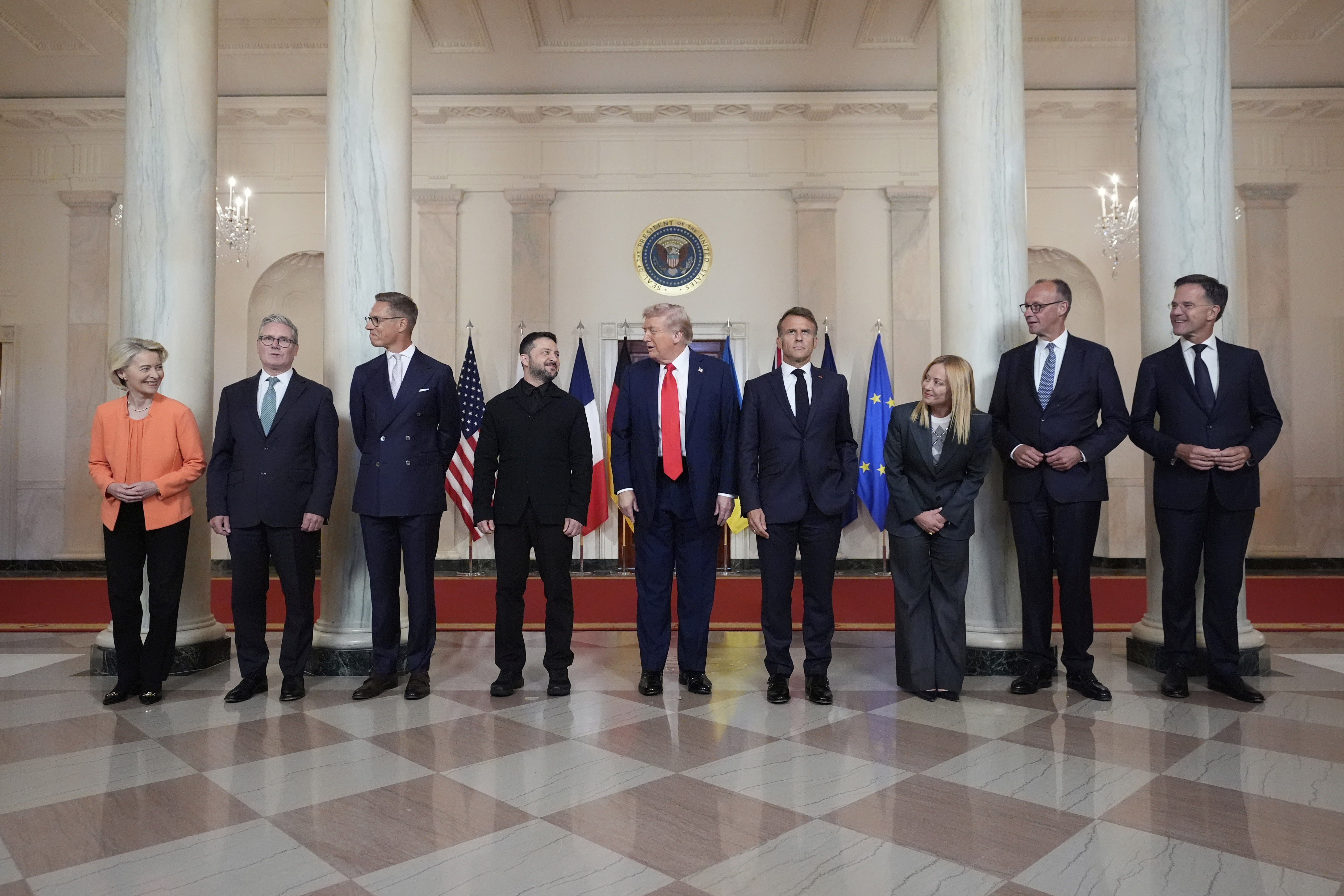The Stalemate in the Russia-Ukraine Conflict: Historical Context and Future Implications
 The Tech Times
The Tech Times
The ongoing Russia-Ukraine war has once again made headlines, with recent meetings yielding little progress toward peace. This persistent deadlock raises questions about its historical roots and what it means for the future.
A Brief Historical Context
To understand the current stalemate, it's vital to delve into the historical backdrop of this conflict. The tension between Russia and Ukraine is not a new phenomenon; it has deep historical roots. Ukraine has long been a focal point of Russian imperial interests due to its strategic location and cultural ties. The fall of the Soviet Union in 1991 marked a new era for Ukraine, which sought independence and closer ties with Western Europe.
However, the relationship between the two nations has been fraught with tension, particularly regarding Ukraine's aspirations to join NATO and the European Union—moves perceived by Russia as threats to its sphere of influence. This geopolitical friction reached a boiling point in 2014 when Russia annexed Crimea following Ukraine's Euromaidan protests, sparking international condemnation and leading to the current conflict.
Analyzing the Stalemate
The recent meetings intended to address the ongoing war have highlighted significant obstacles to peace. The lack of concrete progress suggests that the deadlock heavily favors Russian President Vladimir Putin. This situation is partly due to Russia's military advantages and partly because of the geopolitical dynamics that have left Ukraine in a precarious position.
Putin's strategy seems to be one of attrition, banking on the West's waning resolve to support Ukraine in the long term. The West, on the other hand, continues to grapple with balancing its support for Ukraine while avoiding direct confrontation with a nuclear-armed Russia. This delicate balance has led to a complex and seemingly intractable situation, where every diplomatic effort seems to hit a brick wall.
Implications for the Future
The current impasse in the Russia-Ukraine conflict has several implications for global politics and security. Firstly, it underscores the limitations of international diplomacy in resolving conflicts where major power interests are at stake. The failure to achieve meaningful progress could embolden other states with territorial ambitions, potentially leading to an increase in regional conflicts.
Secondly, the ongoing war has significant ramifications for Europe's energy security. With Russia being a major supplier of natural gas to Europe, any escalation in the conflict could disrupt supplies, leading to economic and political instability in the region.
Finally, the deadlock serves as a reminder of the importance of historical context in understanding contemporary conflicts. The Russia-Ukraine war is not just a geopolitical struggle but also a clash of identities and historical narratives. Resolving such deep-seated issues requires not only diplomatic efforts but also a willingness to address historical grievances and build trust between nations.
Conclusion
As the world watches the stalemate in the Russia-Ukraine war, it is clear that the road to peace is fraught with challenges. The historical context of the conflict provides valuable insights into its complexities, reminding us that sustainable peace requires more than just diplomatic negotiations. It demands a commitment to addressing the underlying issues that have fueled the conflict for decades.
The international community must continue to engage with both Russia and Ukraine, seeking innovative solutions that consider historical grievances and future aspirations. Only then can we hope to see a resolution to one of the most enduring conflicts of our time.
Source: After meetings on Russia-Ukraine war, major obstacles to peace remain
Subscribe to my newsletter
Read articles from The Tech Times directly inside your inbox. Subscribe to the newsletter, and don't miss out.
Written by
